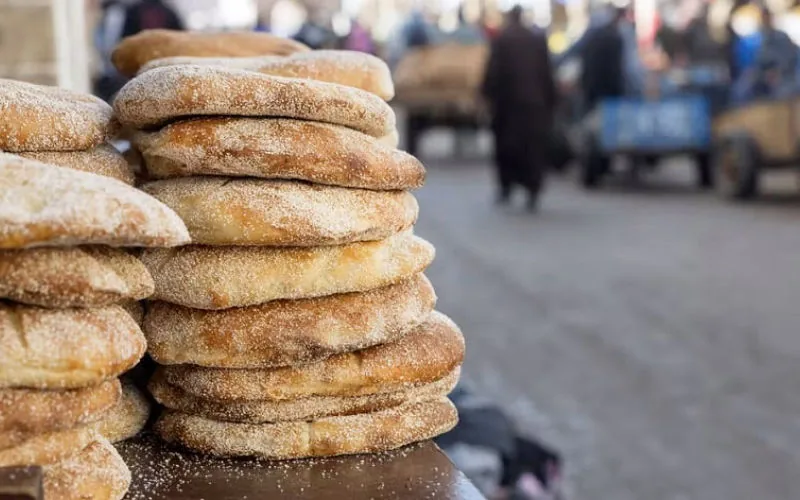Rising Costs Threaten Bread Prices in Morocco, Sparking Economic Concerns

The price of bread, a widely consumed product in Morocco, could see an increase in the coming days or weeks. This is due to market fluctuations and rising transport and production costs.
Traditional and small bakeries, faced with rising gas and flour prices, fear an increase in bread prices, which would push them to reduce the size or quality of this product to preserve their profit margin. This potential rise in bread prices would only anger Moroccan consumers, especially those with low incomes, economists analyze, emphasizing that bread is a sensitive indicator of social stability. For this reason, they invite the government to take urgent measures to ensure the availability of this vital product at an affordable price.
Some Moroccans express concerns about the government’s ability to continue subsidizing bread, whose price has remained unchanged, while vegetable and meat prices have seen a certain decrease, according to data from the High Commission for Planning (HCP). The rise in flour prices has affected the cost of bread production, explained a bread seller to Hespress, specifying that small vendors have preferred not to increase the price to preserve their clientele. Instead, they have reduced the size of the bread or use lower quality flour for production.
If the situation persists, good quality bread will become an inaccessible luxury for low or moderate-income households, fears the seller who states that several owners of small traditional bakeries threaten to close if things remain as they are. The professional calls on the government to act urgently to protect this vital sector and preserve market balance. For a farmer in the Gharb region, the "disappointing" wheat cultivation this season due to scarce rainfall has led to an increase in production costs, pushing many farmers to reduce cultivated areas or give up cultivation altogether.
Faced with this situation, he calls on the state to support small farmers by providing them with production inputs at reasonable prices, and to invest in irrigation and storage technologies to ensure bread production in quantity and quality and thus contribute to market stability. Abdelkader Fassi Fihri, professor of economic engineering at the Euro-Mediterranean University of Fez, will explain for his part that the price of bread in Morocco is subject to the "inflationary contagion effect", specifying that the state subsidy on flour price only covers a small part of the production intended for consumption. According to him, the solution to the bread crisis lies in restructuring the entire agricultural and food value chain.
Related Articles
-

Morocco’s Airport Revolution: $4.4 Billion Boost for Marrakech and Agadir Hubs
27 August 2025
-

EU Unveils Ambitious Mediterranean Pact to Boost Trade and Counter Global Rivals
27 August 2025
-

Cocaine Cash Fuels Casablanca Real Estate Boom: Authorities Probe Suspicious Developers
27 August 2025
-

EasyJet Unveils Moroccan Palace Illusion in Lyon, Boosting Tourism to 5 Exotic Cities
27 August 2025
-

Morocco’s Traditional Clothing Rental Crisis: Cultural Heritage at Risk as Customers Neglect Cherished Attire
27 August 2025